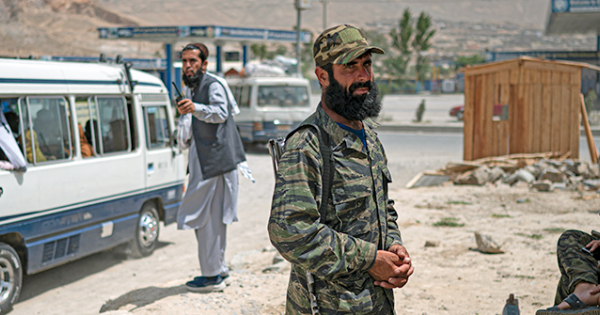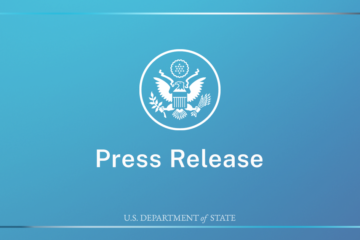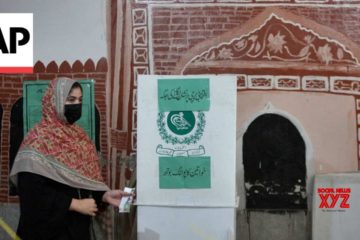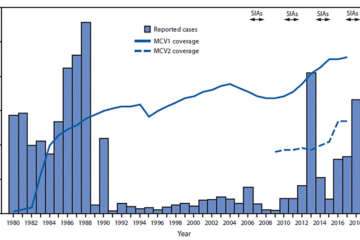Exclusive: DFAT told Afghans to travel without passports – The Saturday Paper

Exclusive: DFAT told Afghans to travel without passports The Saturday PaperRead More
The Department of Foreign Affairs and Trade has told a group of Afghan former Kabul embassy contractors approved for Australian visas that they should try to cross the border from Afghanistan to Pakistan, even if they don’t have passports, after Pakistan indicated its leniency on documentation would end on Monday.
In a special deal that the Australian High Commission in Islamabad brokered with the Pakistani government, Pakistan agreed to accept a group of 73 “undocumented” Afghans who have been offered Australian category 449 temporary visas. But the arrangement was only valid if they travelled via the Torkham international border crossing, south-east of Kabul, and could cross before August 8, which is a week before the Taliban will mark one year since seizing government in Afghanistan.
DFAT told those it emailed about the special arrangement that it “cannot guarantee your safe passage to Pakistan” and noted there are “safety concerns for those seeking to travel within Afghanistan and through the border region”.
Under international law, travelling without a passport or equivalent identity documents is unlawful in all but very restricted circumstances.
Since the fall of Kabul on August 15 last year and the humanitarian crisis that has ensued, Pakistan has taken a tolerant view of Afghans crossing the border without full documentation. There has been a degree of understanding that documents had been lost or destroyed during the conflict and of the difficulty in obtaining new passports with the Taliban in charge.
But the August 8 deadline is being seen as an end to that arrangement, suggesting Pakistan’s patience has run out.
According to Pakistani government documents seen by The Saturday Paper, DFAT lodged a request with the Pakistani Foreign minister on July 7 via its post in Islamabad, seeking permission for 73 named Afghan individuals to cross the Torkham border between July 18 and August 8.
“It is requested that 30 days visa on arrival facility may kindly be granted,” a message from a Pakistani Ministry of Foreign Affairs official to his colleague in the Ministry of Interior says, revealing the agreement with the Australian diplomats, and with the names of the travellers attached. The documents suggest the message was passed along to Pakistan’s paramilitary Frontier Corps border guards on July 14.
The Saturday Paper‘s attempts to contact the High Commission for the Islamic Republic of Pakistan in Canberra this week were unsuccessful.
“Husbands have been resettled but their wives and children were left behind and deemed ineligible because they didn’t have passports and visas for travel to neighbouring countries.”
A spokesperson for the Department of Home Affairs said: “The Australian government urges all people remaining in Afghanistan to prioritise their safety. People remaining in Afghanistan must carefully consider the risks should they attempt to leave by any route.”
In response to questions from The Saturday Paper, DFAT confirmed the high commission had recently entered a “limited agreement” with the Pakistani government.
“Even so, passage is proving extremely difficult,” a spokesperson said.
“Other travellers must continue to hold a valid Pakistani visa to enter the country and meet the conditions of entry and exit. This will be the case for all travellers once the limited agreement concludes. Border control remains a sovereign decision for the government of Pakistan.”
The email that DFAT sent to certain approved former contractors who were still in Afghanistan is silent on how to get past Taliban border guards on the Afghan side without documentation, containing only a safety disclaimer. The Saturday Paper understands some Taliban guards have also accepted the common lack of documentation to some degree, although that approach has not been consistent and attempting to cross still carries considerable risk.
In at least some cases, the offers of Australian emergency visas to the former contractors appear to have been made to individuals only, requiring them to leave their families behind.
The DFAT email was sent in July to a select group who have been certified as former locally engaged employees (LEE) and subsequently approved for visas but who have been unable to obtain an Afghan passport or a national identity card, known as a “Taskera” or “Tazkira”.
The emailed advice was drafted after consultation with other Australian agencies. Crossing the border without proper documents complicates the security assessments required for onward travel to Australia, and Pakistan’s offer to receive the Afghans is contingent on them travelling on.
The DFAT email has caused confusion and frustration among other former embassy contractors who applied for visas but have not been granted them and are questioning the basis for decisions.
While the visa offers have gone to some who worked in various jobs at the Australian embassy, others who worked as security guards – arguably at greater risk – appear to have been overlooked.
Instead of being included in the LEE program visa offers, they are being told they are ineligible and encouraged to apply as part of the general humanitarian and refugee intake instead – a much less streamlined process.
This would seem to contradict any argument that they might have been rejected on security grounds, although that is unclear.
Australian law firm GAP Legal has assisted many former embassy contractors with their visa applications and its staff say they are puzzled by the emergency 449 visa selection process. GAP Legal human rights law advocate Dr Kay Danes praises DFAT’s work in assisting Afghans to get to Australia but says she is “a little disappointed” by what she calls inconsistent messaging.
“Many of those who would be deemed most at risk of harm because of their strong connection with Australian missions and departments have been diverted to the mainstream humanitarian visa program,” Danes tells The Saturday Paper.
“Husbands have been resettled but their wives and children were left behind and deemed ineligible because they didn’t have passports and visas for travel to neighbouring countries. These exceptions have been made, however, randomly for others who could be considered less at risk of reprisals, namely because their work did not expose them to direct targeted attacks.”
Danes suggests DFAT “still lacks an understanding of risk”.
GAP Legal is assisting 40 former Kabul embassy security guards who have applied for visas along with their families – about 250 people in all. They remain in Afghanistan, desperate to leave.
Home Affairs advises that 7000 three-month emergency 449 visas have been issued to Afghans since August last year. Many, although it appears not all, have been renewed when they expired. It has not confirmed how many have been converted to other longer-term visas.
The Australian government has earmarked 2500 places annually for Afghans within the annual humanitarian intake of 13,750, plus another 4125 a year, in a special allocation made under the previous government.
Pakistan’s decision to take a more traditional view of cross-border travel from Afghanistan may be related to renewed security concerns about the activity of extremists in Afghanistan in the wake of the Taliban takeover.
August 15 will mark a year since the Taliban seized Kabul and toppled the Afghan government.
Seeking international legitimacy, the returned Taliban has claimed to be a more modern and competent version of the extremists who ruled Afghanistan before it was overthrown in the military conflict that followed the September 11, 2001, terrorist attacks on the United States.
But the Taliban has presented little evidence that it has changed, with a renewed crackdown on journalists and Afghans with foreign connections, and a return to draconian restrictions on women and girls.
After Kabul fell, the Taliban declared there were no operatives from al-Qaeda or ISIS in Afghanistan. Increasingly, evidence refutes that.
The American assassination last weekend of al-Qaeda terrorist leader Ayman al-Zawahiri, announced by US president Joe Biden, has strengthened the doubt about the Taliban’s reformist claims.
The mastermind of the September 11 attacks alongside Osama bin Laden, Zawahiri was killed in a targeted US drone strike on a safe house near the embassy district in Kabul, where he was making little attempt to conceal himself. The Taliban called the attack a breach of the agreement with the US, struck in Doha, Qatar, that led to the formal end of the 20-year war.
“The Islamic Emirate of Afghanistan strongly condemns this attack on any pretext and calls it a clear violation of international principles and the Doha Agreement,” Taliban spokesman Zabihullah Mujahid said on Twitter.
“Such actions are a repetition of the failed experiences of the past 20 years and are against the interests of the USA, Afghanistan and the region.”
The Australian government was among those welcoming the death of Zawahiri, who had been linked to other al-Qaeda terrorist acts, including the 1998 bombings of the US embassies in Kenya and Tanzania and the attack on USS Cole in the Yemeni port of Aden in 2000. In a statement to parliament on Tuesday, Prime Minister Anthony Albanese acknowledged the pain of Zawahiri’s victims.
“May they find some small solace in the knowledge that he cannot cause more grief through his acts of terror,” Albanese said. “And let terrorists see that Afghanistan will never, ever be a safe haven for their hatred, their terrorism and their attacks on our humanity.”
It’s a vow commonly made by the US and its allies since their military withdrawal. Not everyone has confidence it can be upheld.
This article was first published in the print edition of The Saturday Paper on
August 6, 2022 as “Border lines”.
A free press is one you pay for. Now is the time to subscribe.











